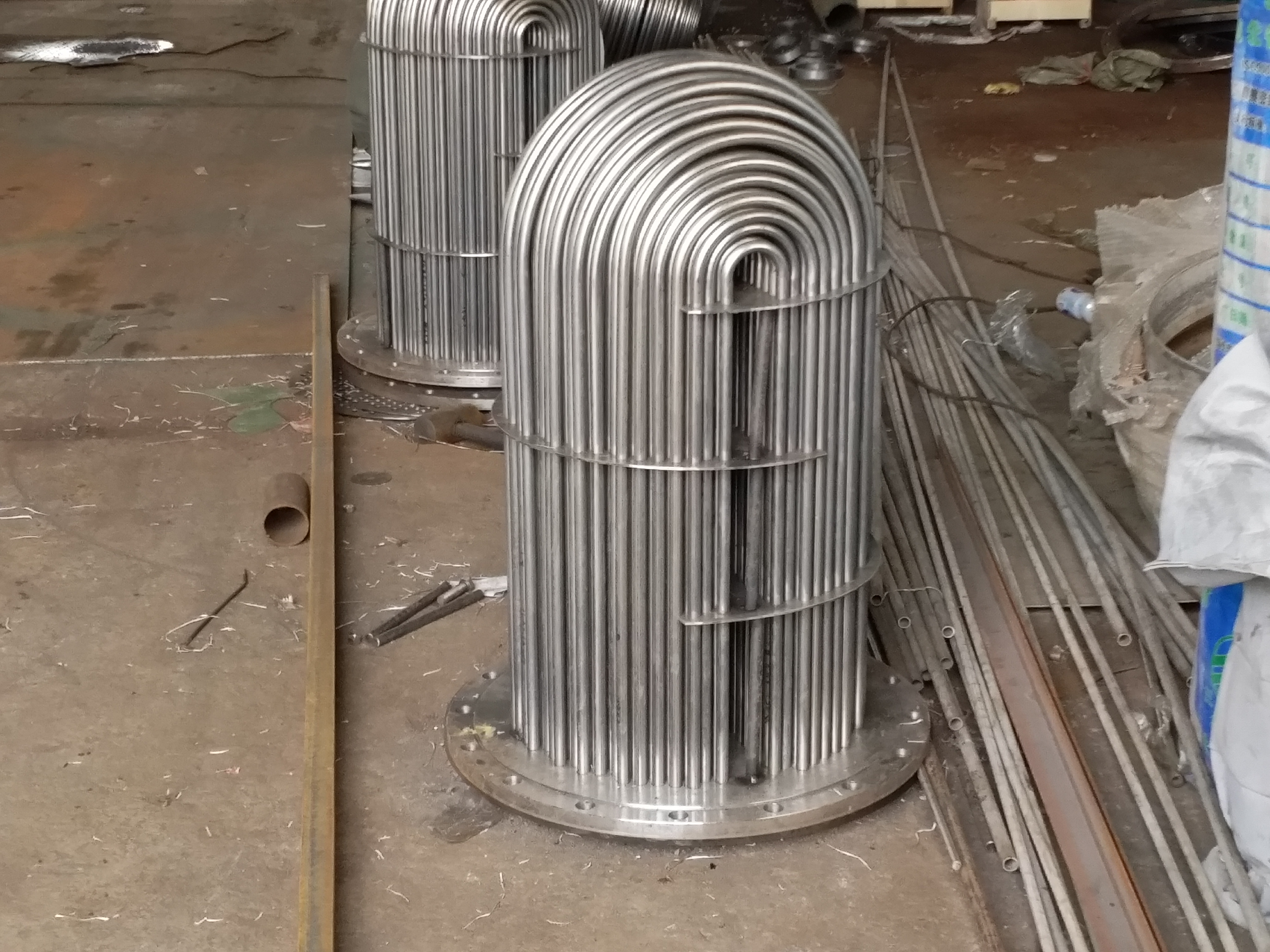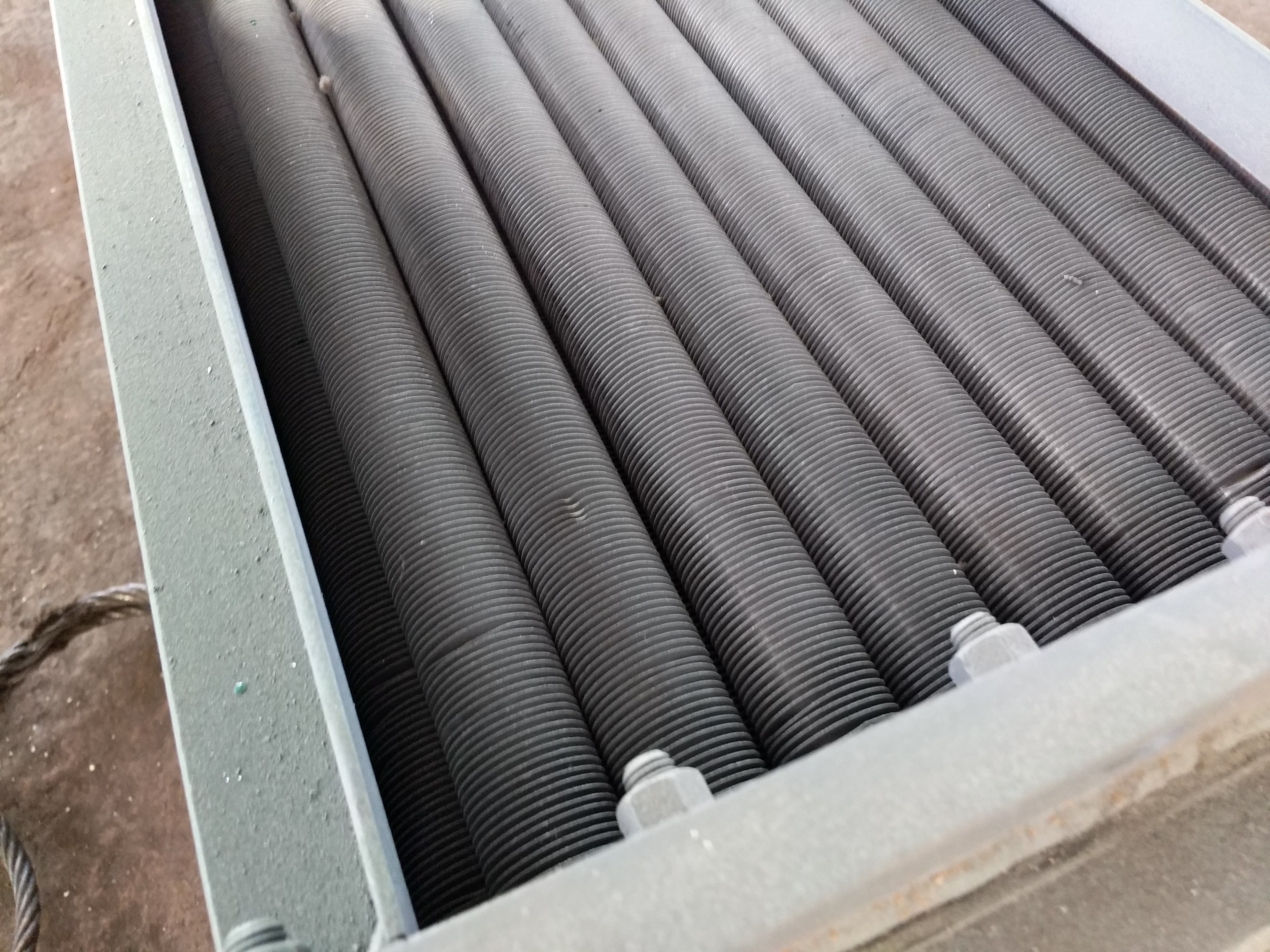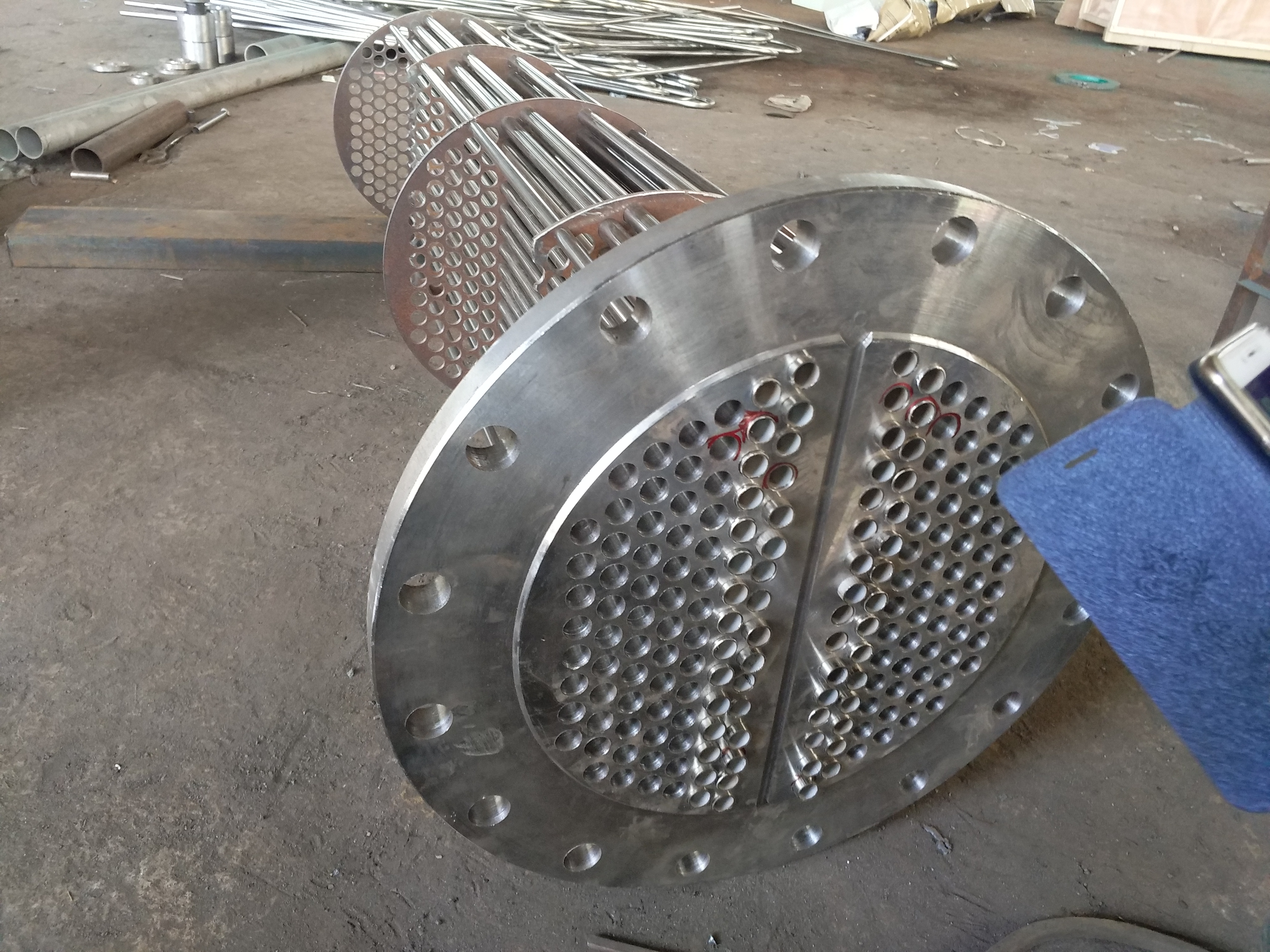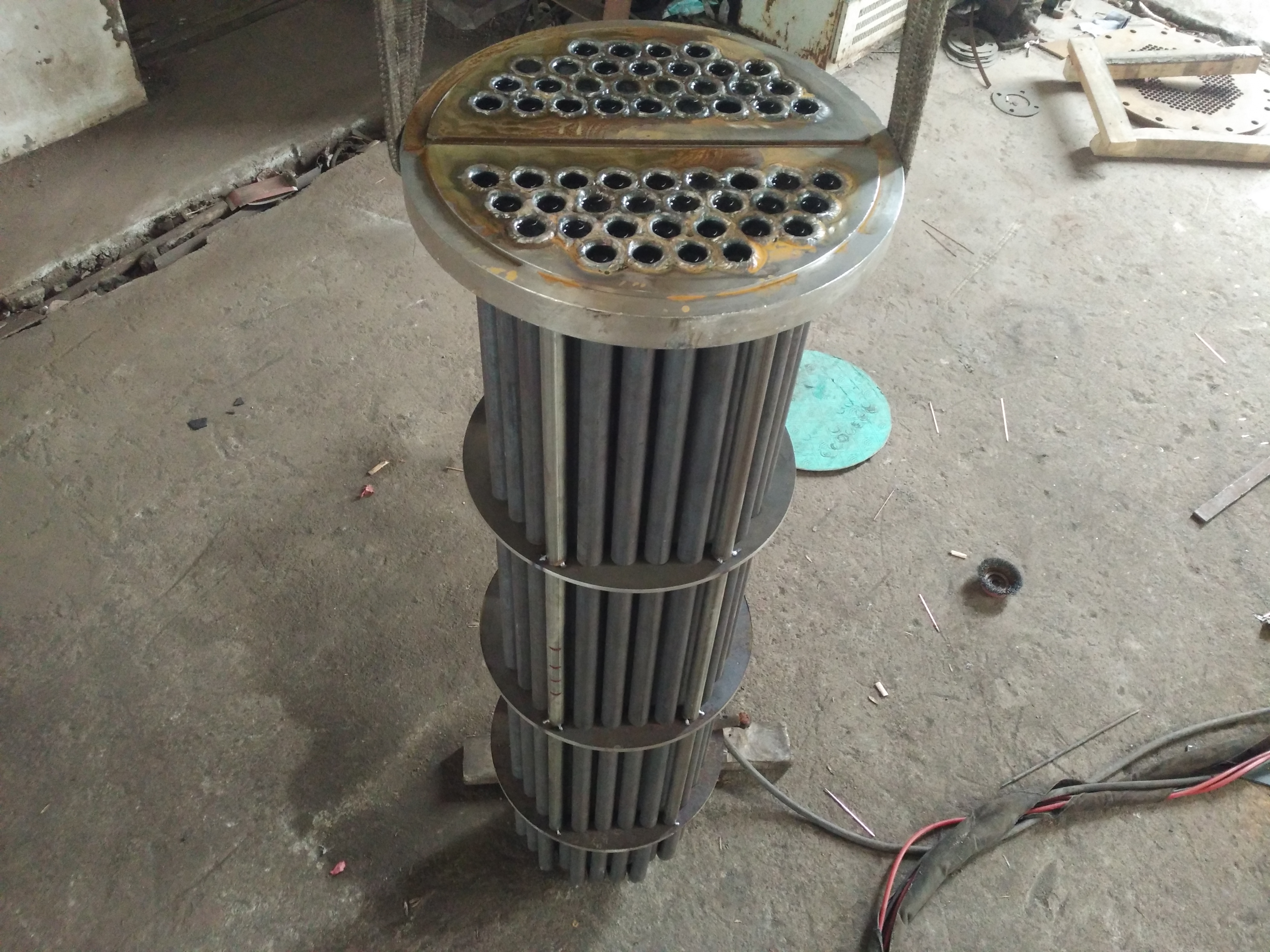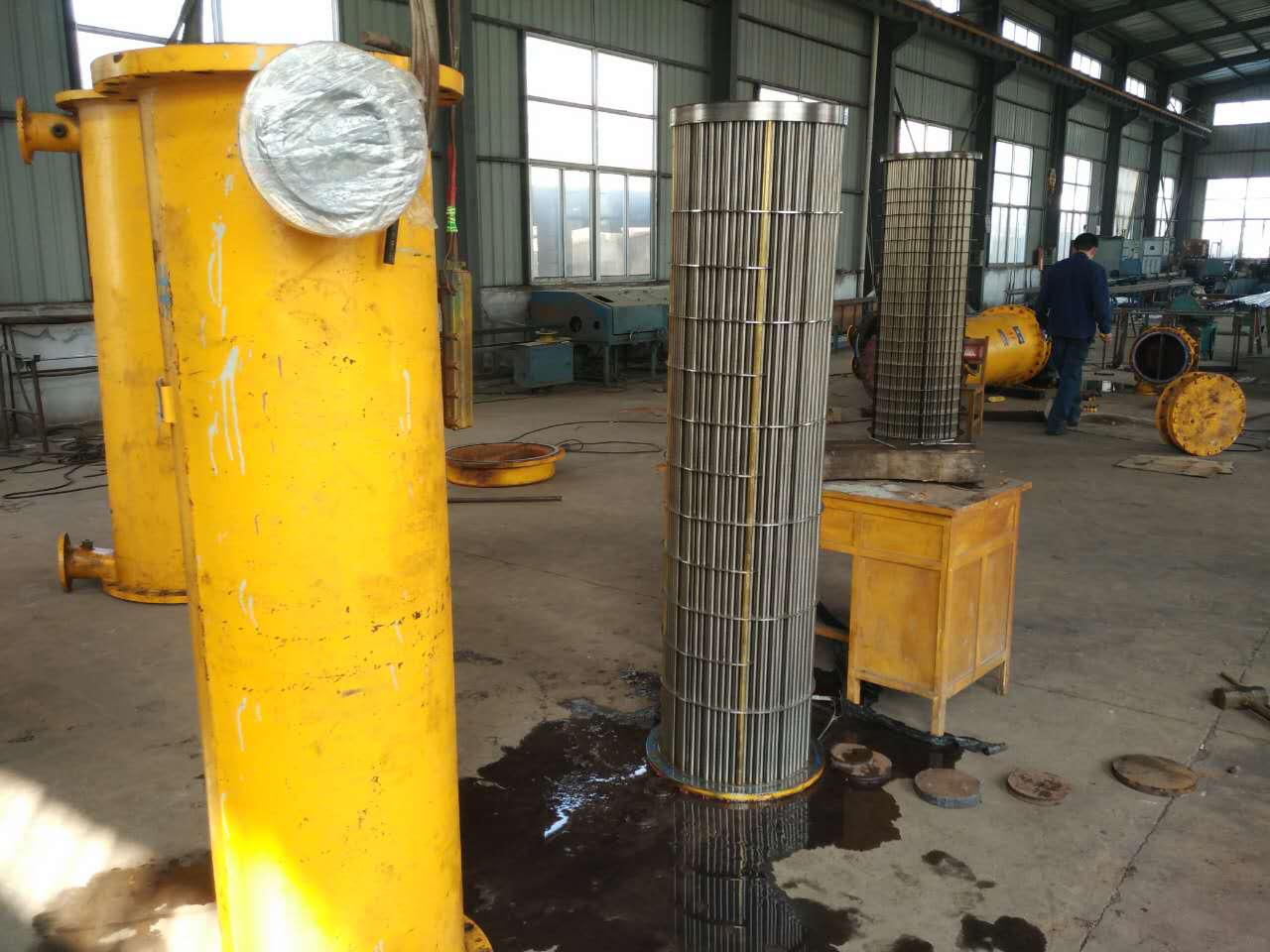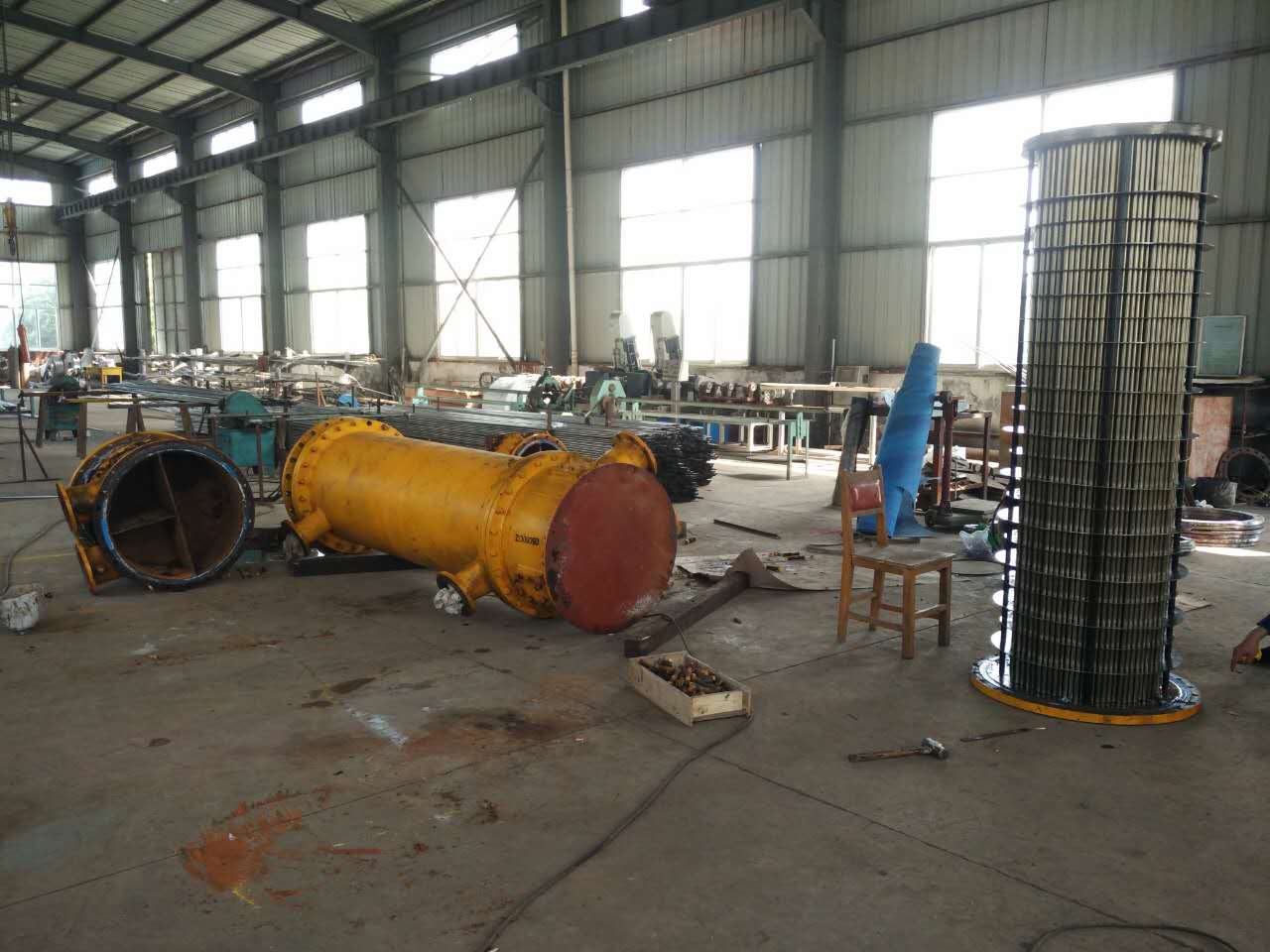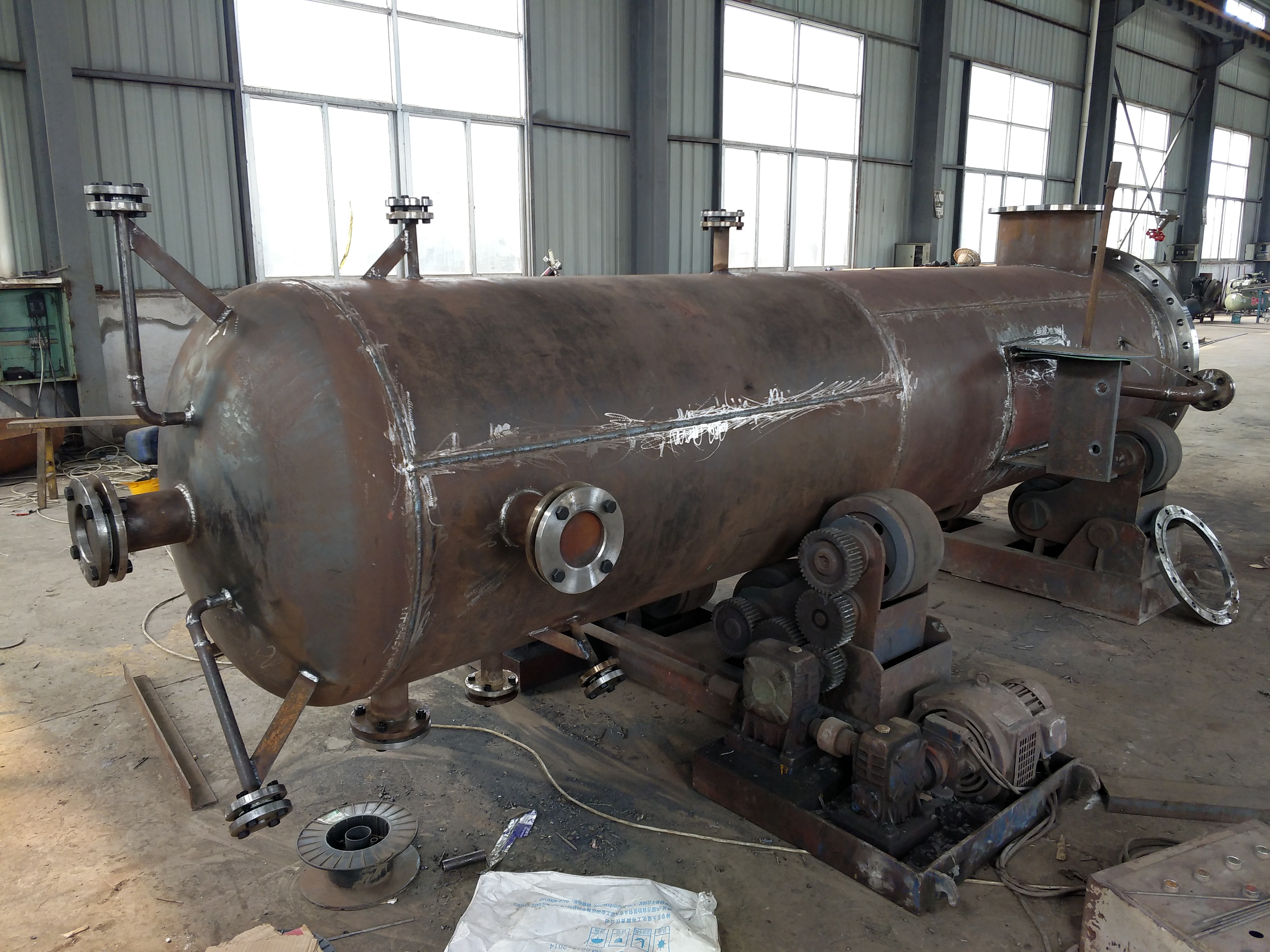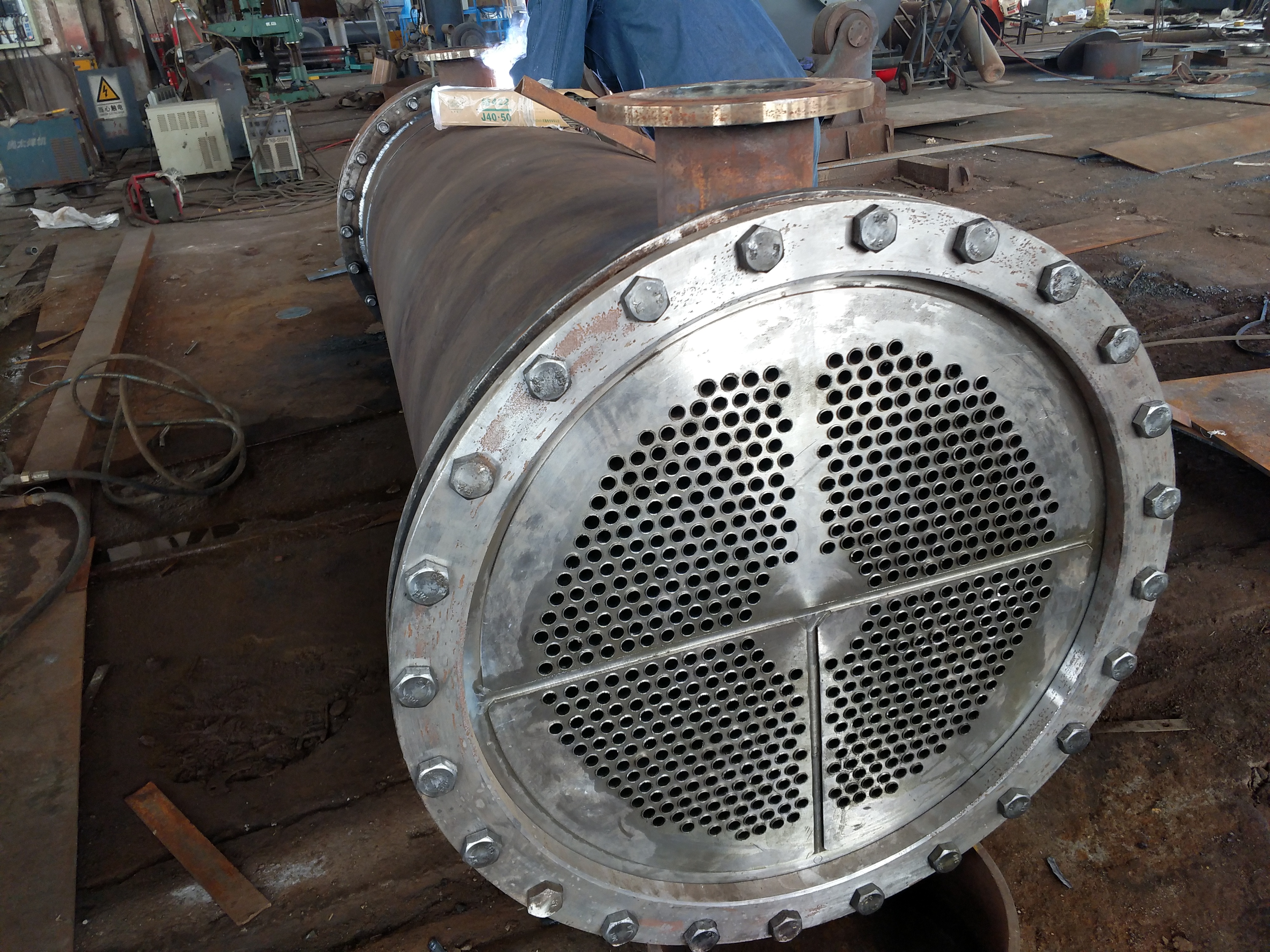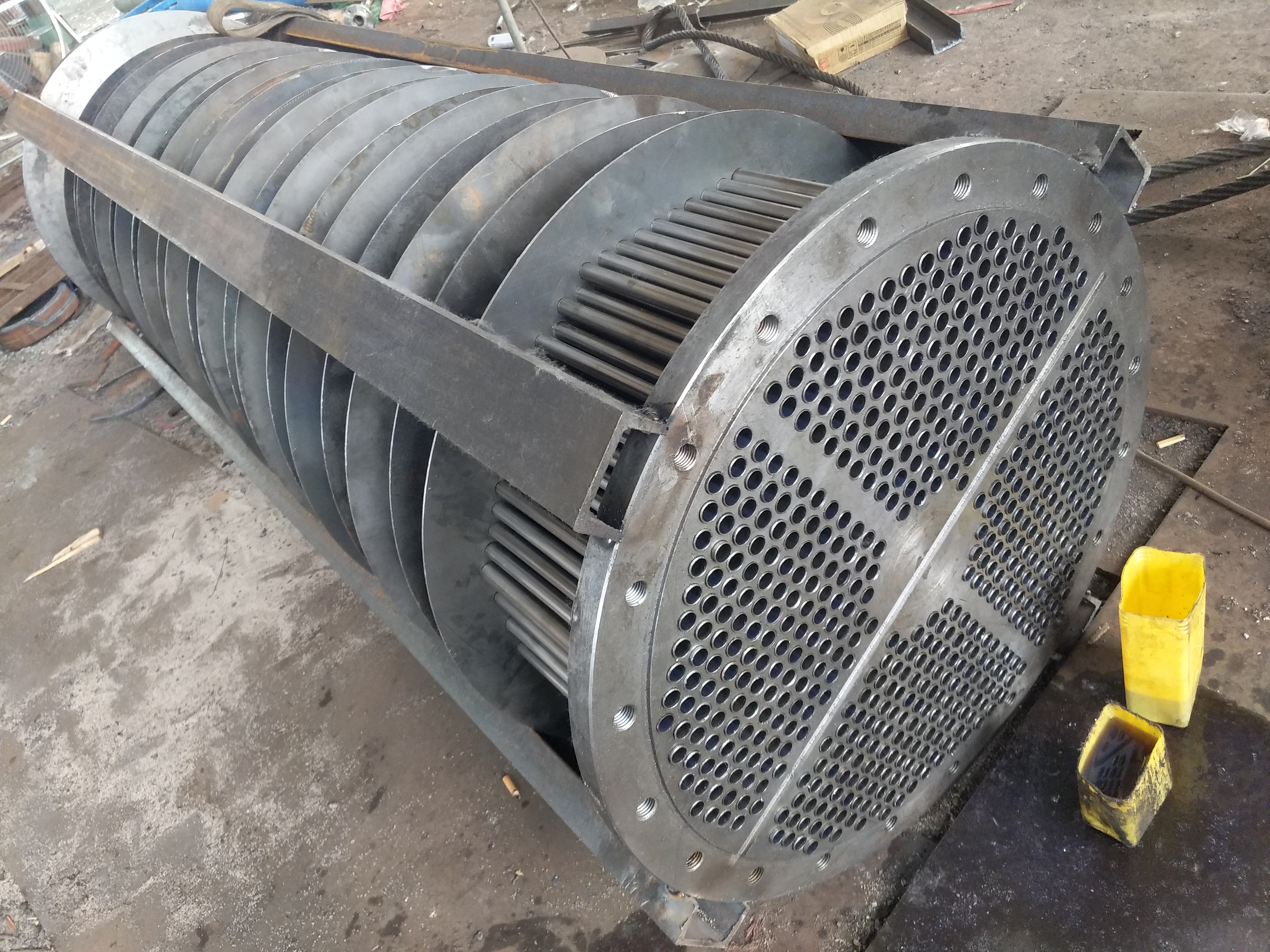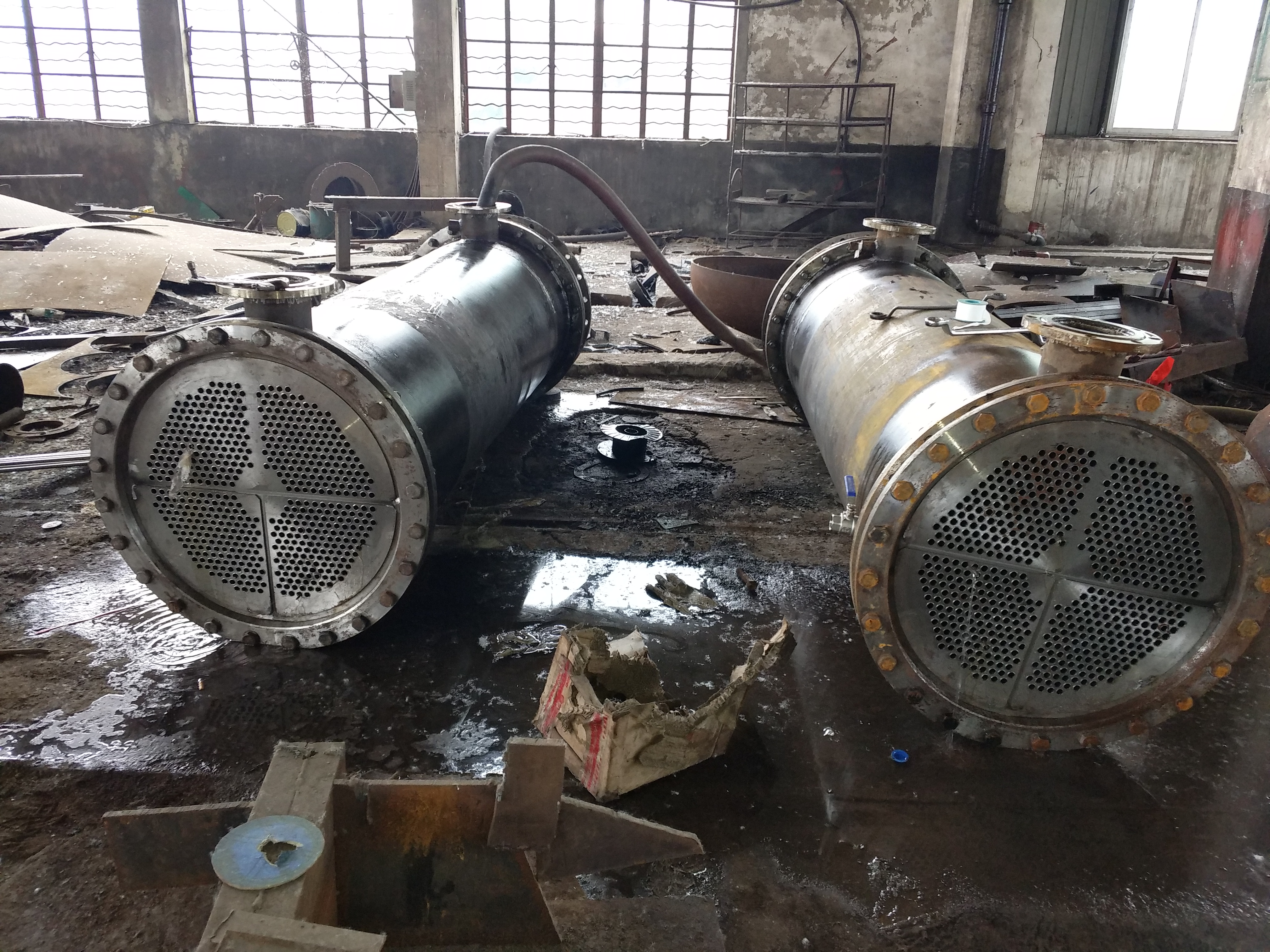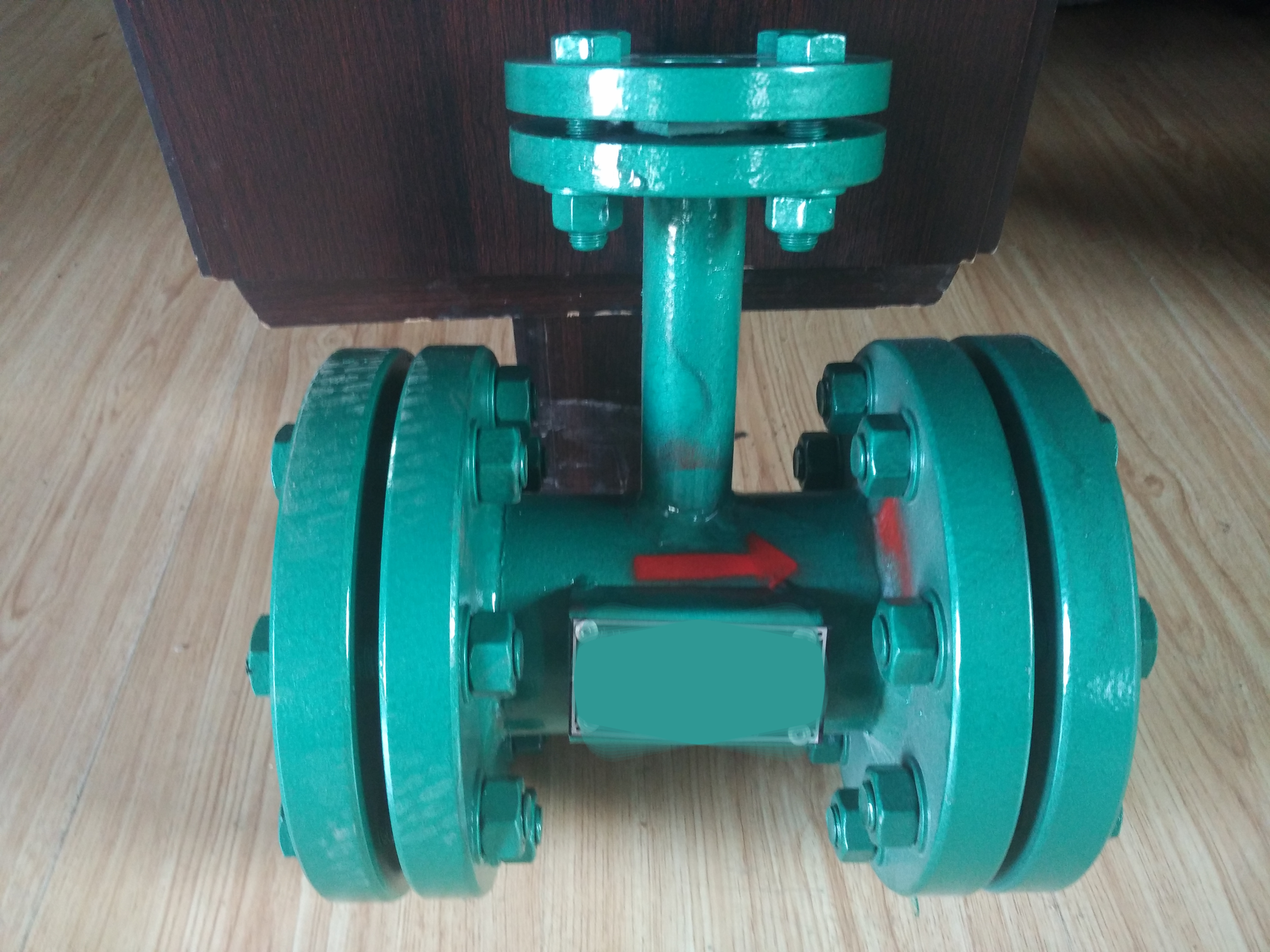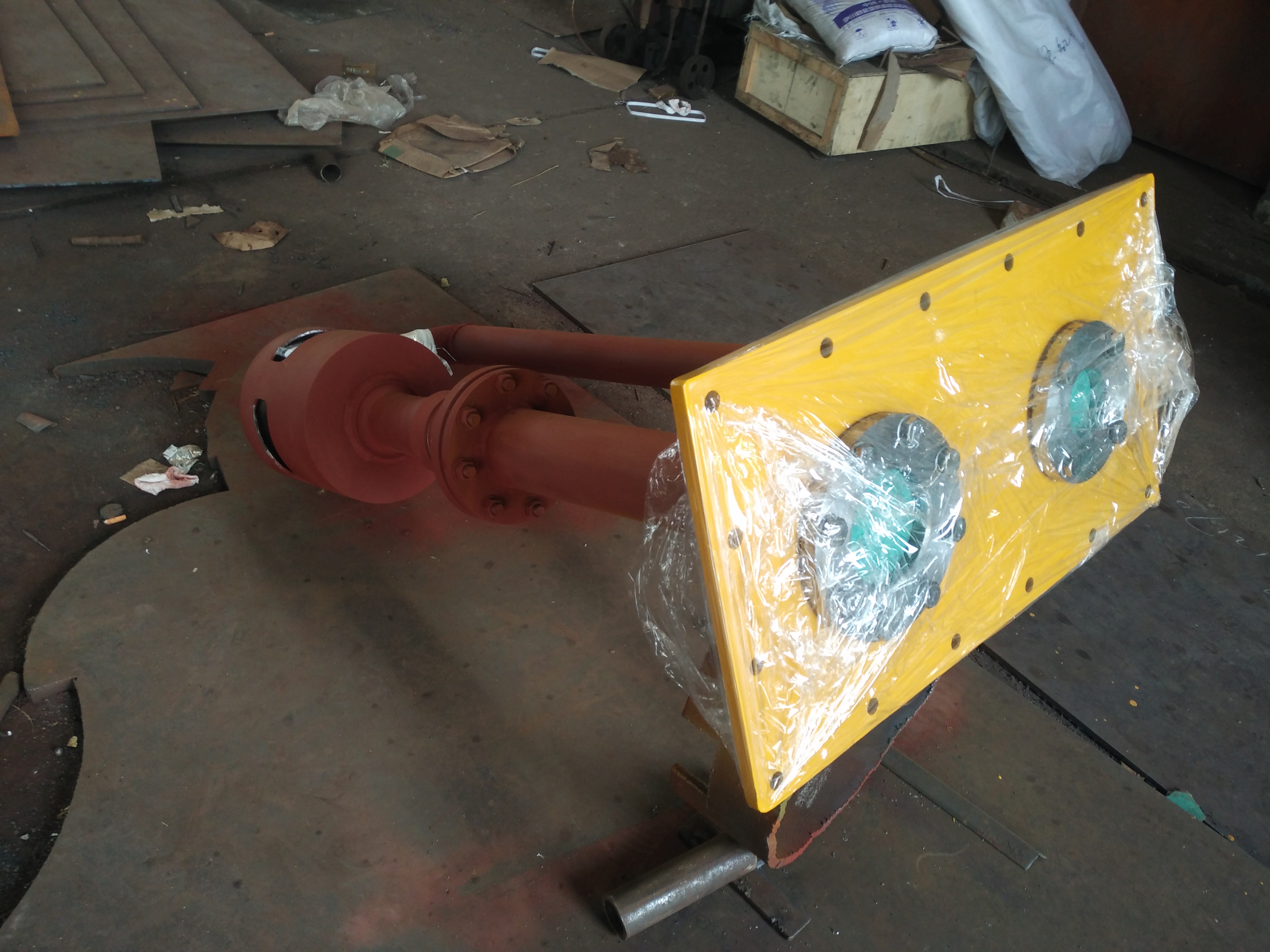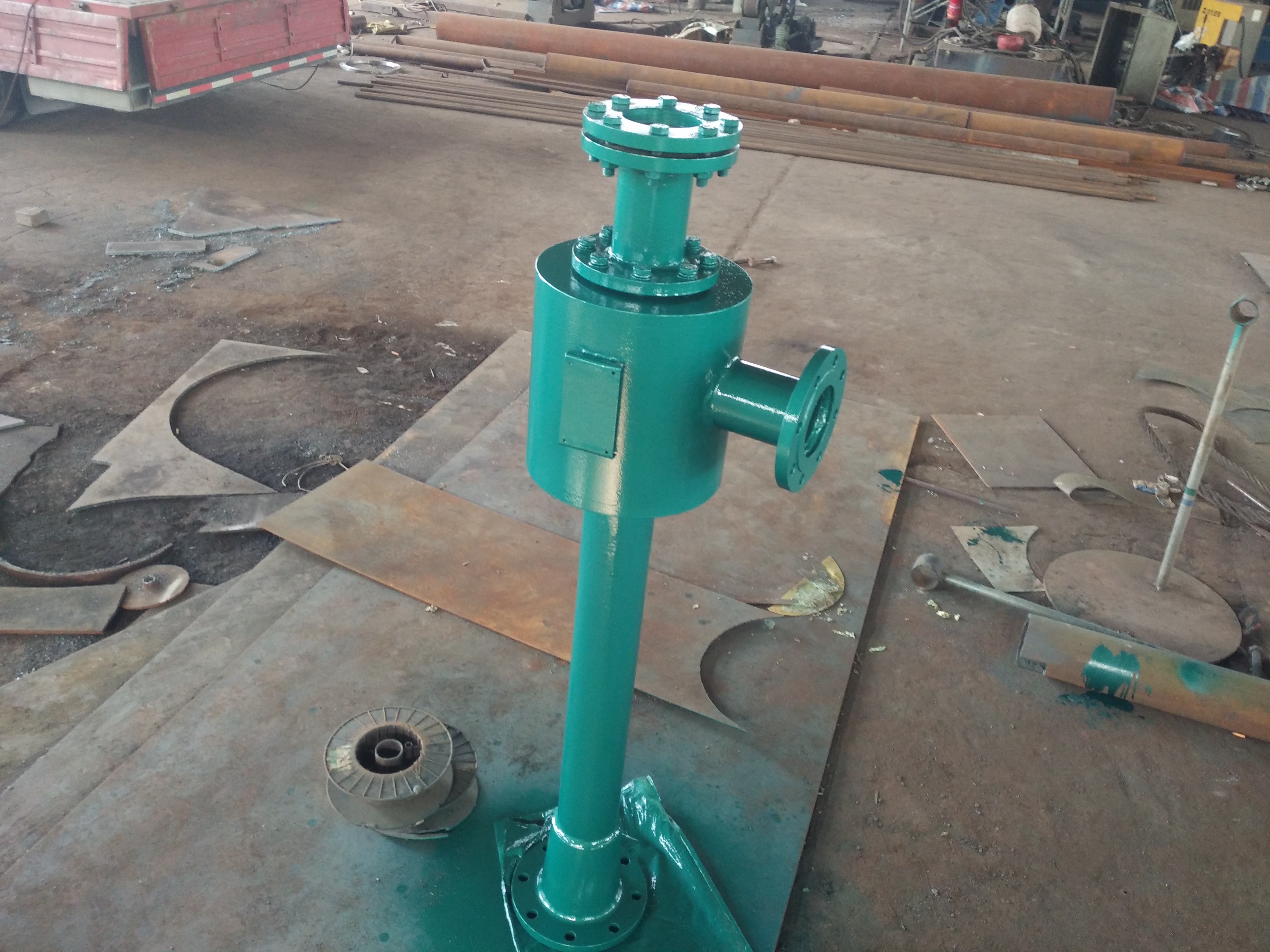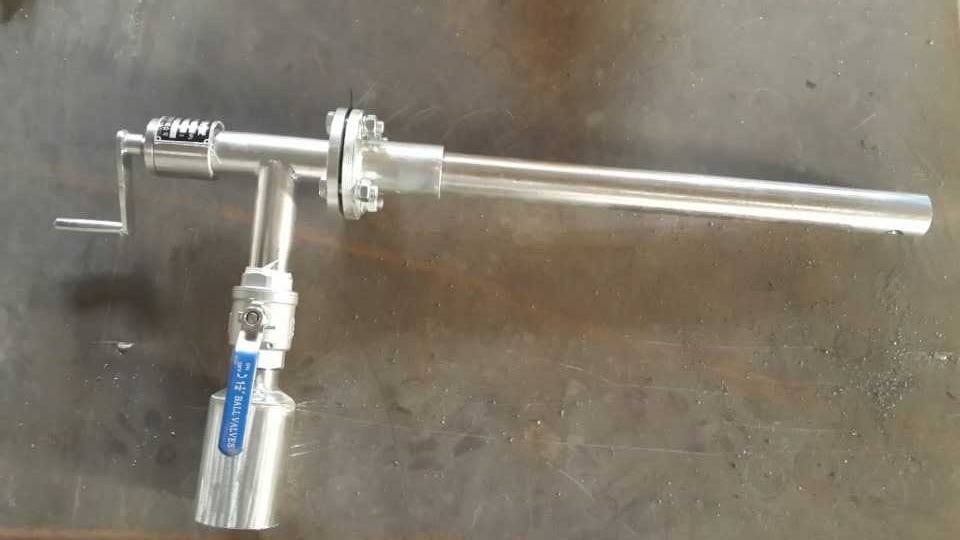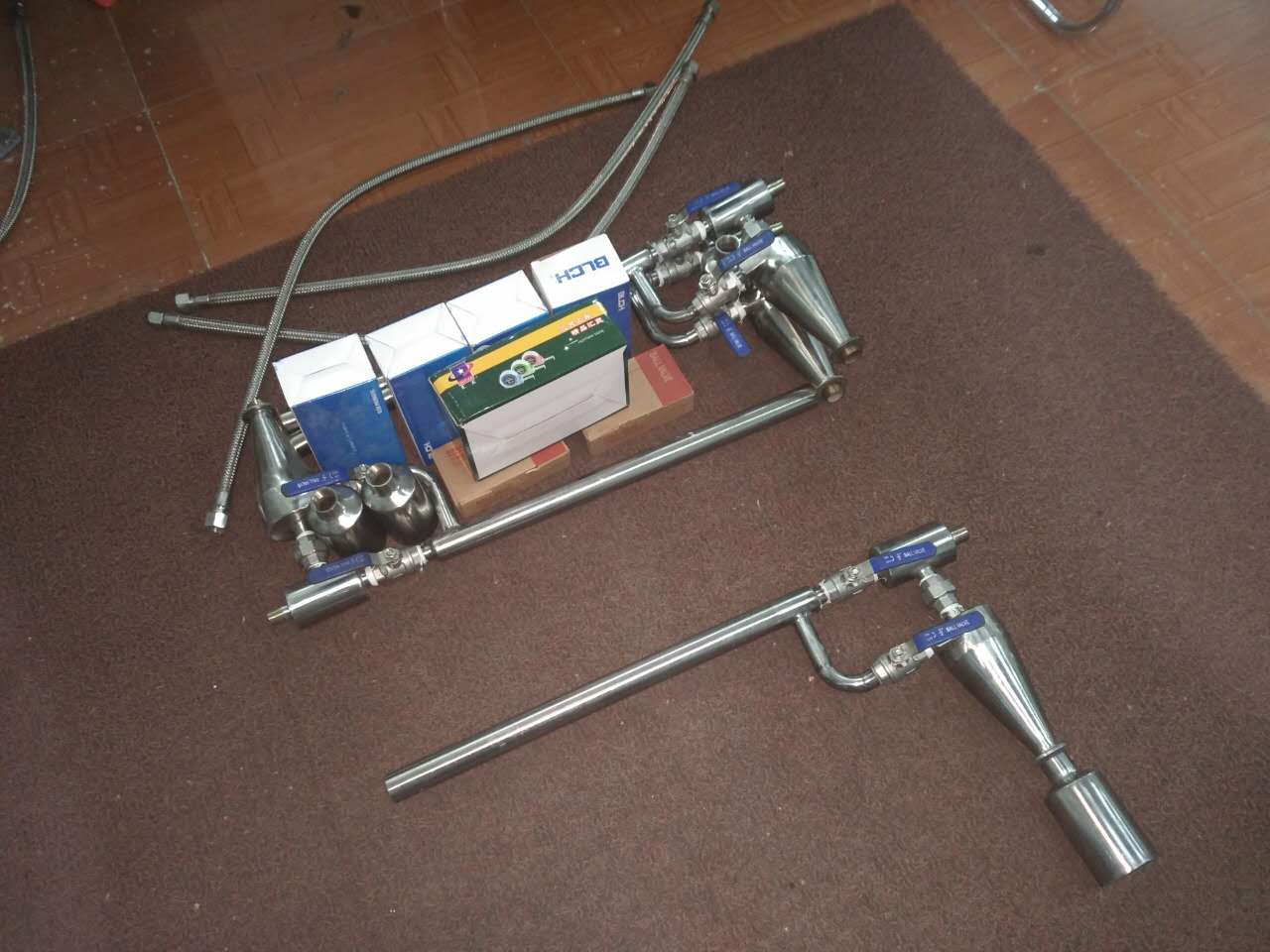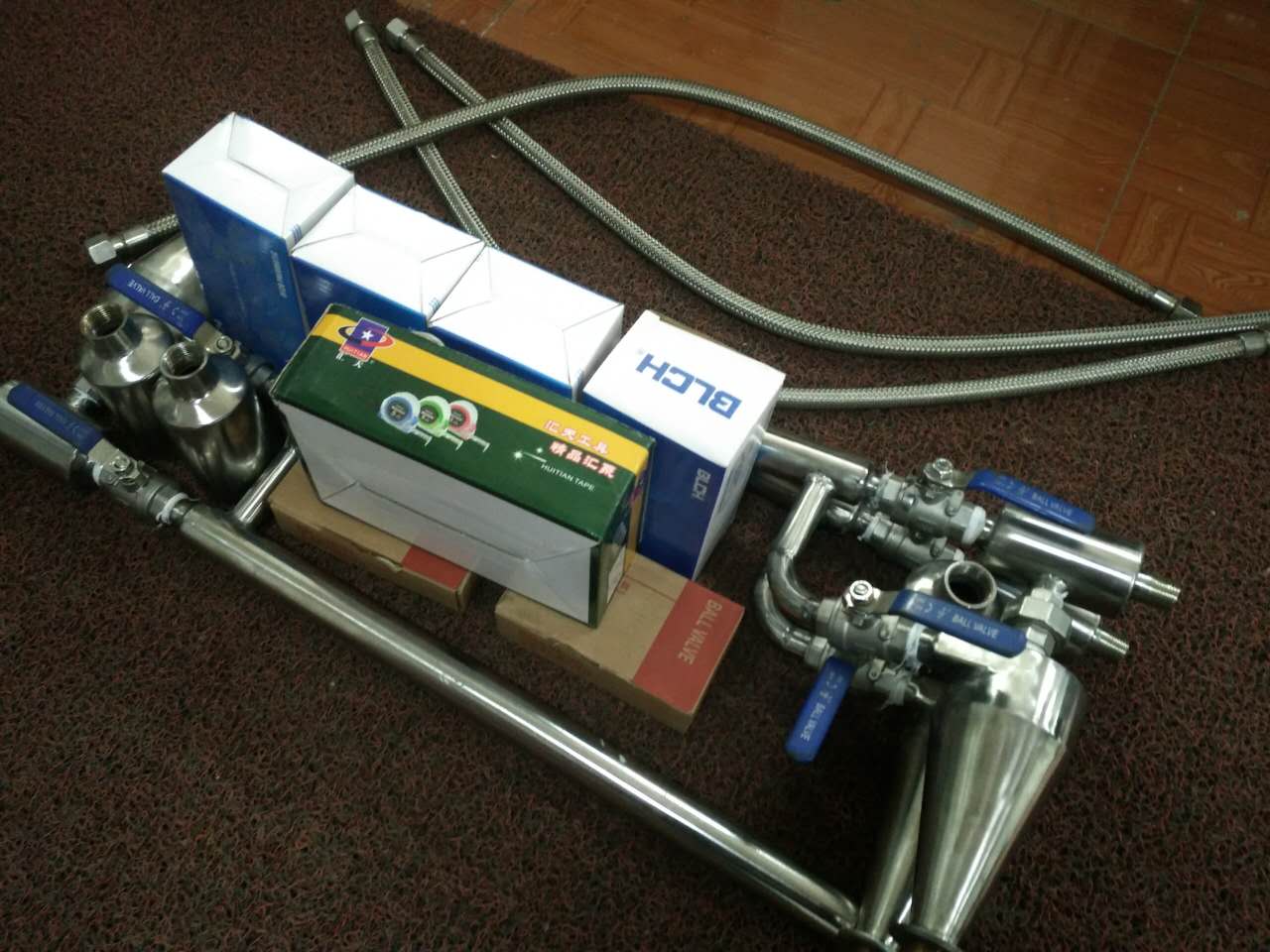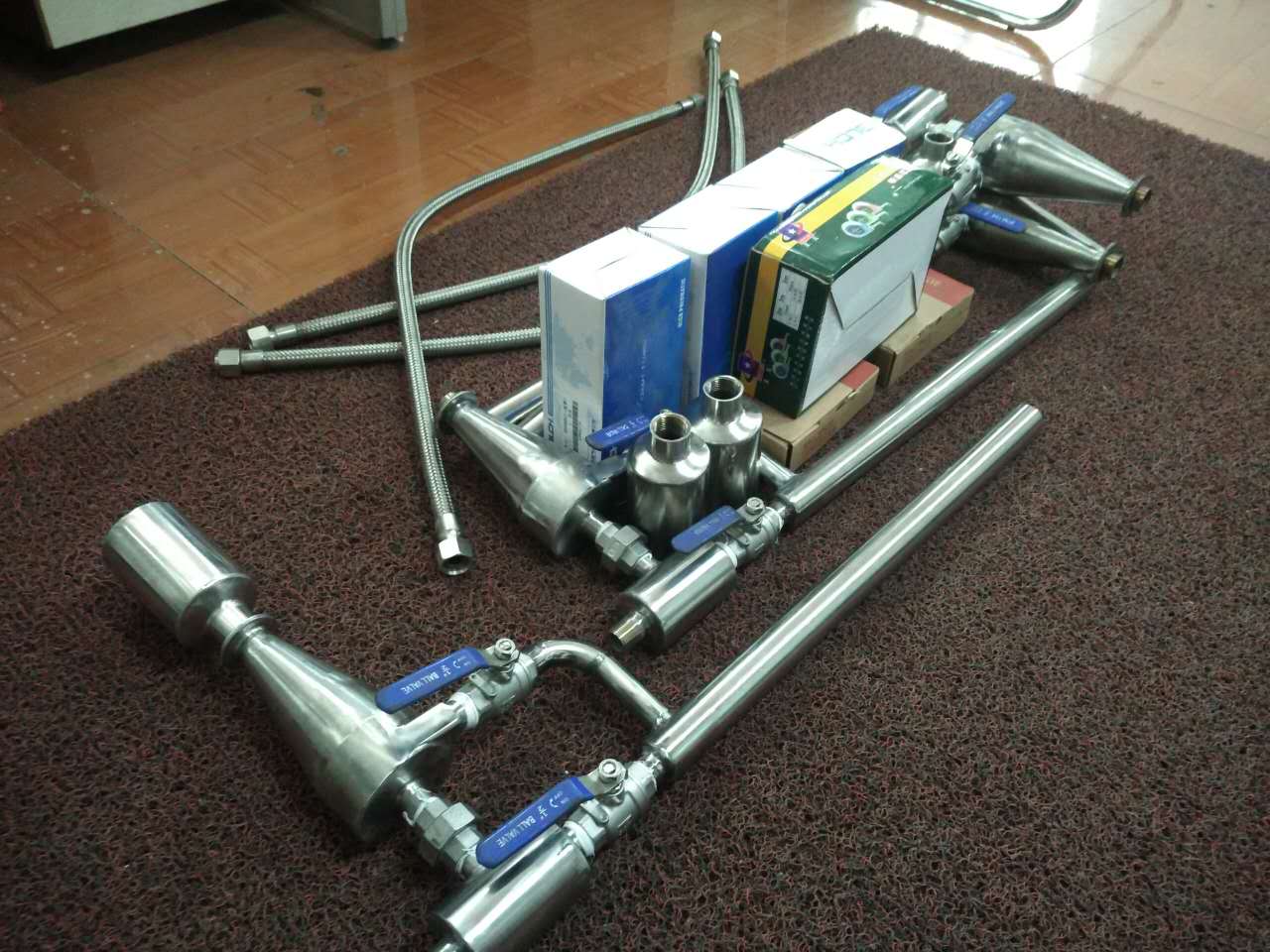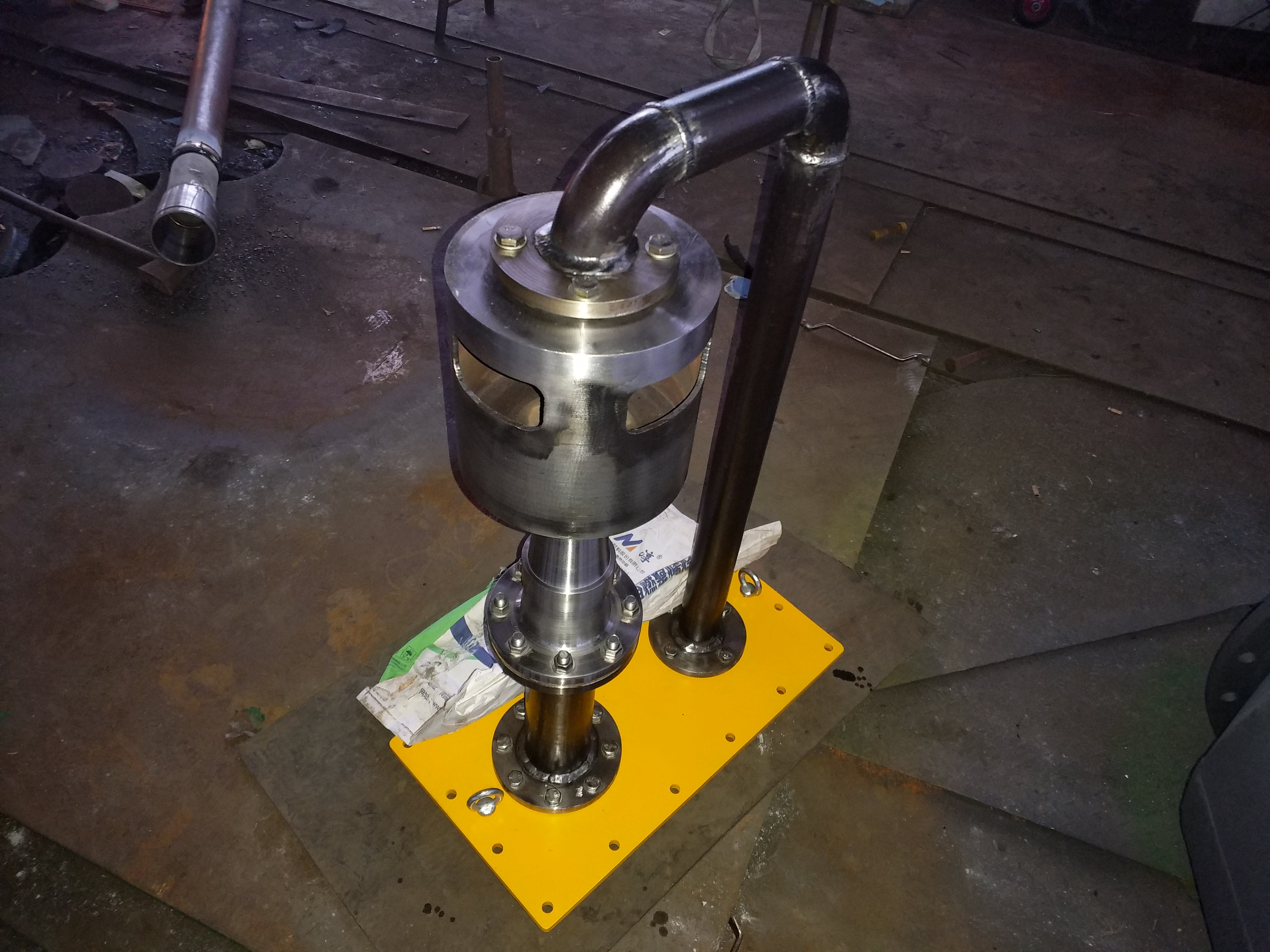Application of safety valve silencer:
The TA type exhaust safety valve silencer is suitable for the safety valves of pressure devices such as PCV/ERV safety valves (power release valves), drum safety valves, superheater safety valves, and reheater safety valves in power plant boilers. The steam venting should avoid excessive noise and allow the steam flow to be discharged smoothly without affecting the displacement, jumping, and reseating of the safety valve. Therefore, the commonly seen noise reduction methods of throttling and small hole injection are not adopted. This limitation is mainly due to the difficulty in designing safety valve silencers and the poor noise reduction results of safety valve silencers. The TA type safety valve silencer adopts the principle of spray impedance composite noise reduction, which replaces the smaller diameter control hole with a large hole expansion, and strengthens the anti noise and resistance noise reduction mechanisms on the structure, achieving the effect of additive noise reduction.
For boiler safety doors and exhaust valves, they can be seen as components of the pipeline. After acoustic treatment internally, they can reduce the generation and transmission of noise, resulting in an outlet noise reduction of more than 40 decibels (A sound), and a corresponding reduction of more than 50% in loudness. This is subjective and does not affect the flow of air. Design exhaust safety valve muffler,
The safety valve silencer should consider the following three aspects:
1. Noise reduction effect; Noise reduction of safety valve silencer;
2. The safety valve silencer has low resistance and does not affect the displacement of the safety valve or the jumping and reseating conditions;
3. Design and supply a composite sleeve for the exhaust pipe, drain plate, exhaust pipe, and muffler after the safety valve, ensuring that the safety valve is not affected and that steam is emitted from the drain plate.
However, some manufacturers use commonly used sound-absorbing methods such as throttling and small hole injection, which often result in instant steam blockage and poor pressure, leading to cracking accidents. Therefore, the design of safety valve silencers is difficult, and it is also the reason for the poor silencing effect of safety valve silencers.
Our factory produces the following types of mufflers:
1. Boiler Fire Exhaust Silencer (TB) Type
To suppress the noise emitted by high-pressure steam flow, when there are already various forms of mufflers, the principle of throttling and pressure reduction is widely used. Due to its complex structure, large quantity, and difficulty in disassembly and repair, its application scope is limited. The muffler of this type of structure overcomes the above shortcomings. This type of exhaust muffler is designed in accordance with a reasonable sound reduction principle. High pressure steam enters the pressure reducing body through a large volume expansion after passing through a flow control in the exhaust muffler, forming low-pressure steam that is then sprayed out. During this process, the internal energy of the steam flow is partially converted into sound energy of a certain frequency. Although the noise power is greatly reduced, it often remains above the standard value due to reasons such as deviation from the design value of the exhaust. For this purpose, a double-layer junction sound barrier was designed outside the pressure reducing body, which is based on the spectrum of residual noise emitted by the pressure reducing body, to effectively absorb residual noise. When the user installs according to the requirements, the total noise reduction should reach 35-45 decibels, greatly higher than the industrial enterprise noise hygiene standards issued by the government.
2. Safety valve silencer (TA type)
-As is well known, for the safety valves of boilers and other thermal devices, excessive noise should be avoided during steam exhaust, and the steam flow should be smoothly discharged. Therefore, the commonly seen sound-absorbing methods for throttling and small hole injection should not be used. This limitation is not only the difficulty in designing safety valve silencers for safety valves, but also the reason for the poor sound-absorbing effect of safety valve silencers. This type of safety valve muffler also adopts the principles of resistance, spray, and resistance for noise reduction. It replaces the smaller diameter control hole with a large hole expansion, strengthening the resistance, spray, and resistance for noise reduction, and achieving the desired sound reduction effect.
3. Low pressure steam silencer (TD type)
Various industrial and mining enterprises use a large number of low-pressure boilers with a pressure of 01.3MPa and below, and there are also a large number of low-pressure thermal devices in the power plant thermal system, such as backpressure steam turbines, deaerator, auxiliary air extractors, steam turbine oil pumps, continuous boiler discharge, and periodic discharge expansion devices. The exhaust pipe of the above equipment requires a lightweight and easy to install muffler. Our factory designs a series of useful deaerator, backpressure steam turbine, and other series for different noise reduction objects, which can meet the requirements of users. The above noise reduction meets the requirements of the Industrial Enterprise Noise Hygiene Standard and has been adopted internally.
Application and Production of Safety Valve Silencers:
Safety valve silencers are mainly used in industries such as electric power, chemical industry, metallurgy, etc. - to eliminate high temperature and high pressure steam emissions from safety valves, PCV valves, and exhaust valves. The exhaust noise of the safety valve is mainly high-frequency noise, and the noise reduction cannot affect the jumping and reseating of the safety valve. Therefore, we adopt the sound reduction principle of through-hole injection combined with resistance for the safety valve silencer. It replaces small hole injection with through-hole expansion to ensure smooth exhaust of the safety valve, and the sound reduction plate structure has good absorption of high-frequency noise
The safety valve silencer has the following features:
1. The noise reduction capacity of the safety valve muffler can meet the requirements of the Industrial Enterprise Noise Hygiene Standard, reducing the outlet noise by 25-30 decibels (A liters -);
2. The safety valve silencer does not affect the discharge flow rate of the safety valve and can allow the safety valve to jump and reseat smoothly.
3. The structure of a safety valve muffler - capable of adapting to high temperature, high pressure, various emission frequency bands, and exhaust pipe diameter.
Principle of safety valve silencer:
Our factory's type safety valve silencer adopts the principle of through-hole spraying and blocking for noise reduction. It replaces the microporous perforated plate type with a large hole expansion and flow control. On the structure, the safety valve exhaust must be smooth, and the layered perforated sound absorption is combined with the principle of blocking and silencing. It allows steam sound waves to enter the small holes of the sound-absorbing material, causing molecular vibrations of the material, and converting sound energy into heat energy to overcome frictional resistance and viscous forces, This achieved the desired sound reduction and ensured the smooth elimination of steam.
Selection Guide for Safety Valve Muffler:
The steam silencers produced by our factory are divided into the following three types:
1. TB type exhaust muffler: used for high pressure boiler fire exhaust muffler, selected from Table 1.
2. TA type exhaust muffler: used for high and high pressure steam safety valve exhaust type safety valve silencers, selected from Tables 2 and 3.
3. TD type low-pressure through-hole silencer: used for steam exhaust silencing of various boilers, deaerators, backpressure steam turbines, and other power plant auxiliary equipment below 0.16Mpa. Select from Tables 4 and 5.
For those not listed in the table, users can provide information such as steam parameters, emissions, and pipeline interface dimensions of the equipment, which will be selected by our factory.
Order and selection of safety valve silencers:
The silencers produced by our factory are carefully designed according to the emission targets and requirements of the users. Therefore, only when the production and emission targets and parameters are consistent can significant noise reduction be achieved. Therefore,
When ordering safety valve silencers, the following information must be provided:
(1) Safety valve exhaust volume - less (T/h), as well as pressure and temperature.
(2) Outer diameter and wall thickness of exhaust pipe;
Safety valve and muffler ordering requirements:
Our company can independently design safety valve silencers for valves outside the system. Can provide consulting services such as technical and economic comparisons. When placing an order, the user must provide the following information:
1. Host device model and specifications. The main parameters of the medium, pressure, temperature, etc. used in the equipment.
2. Exhaust (gas) pipe system - layout diagram and selected valve models, specifications, quantities, exhaust pipe specifications, materials, lengths, and elbow specifications and quantities.
Safety valve silencer model:
For example, AD-205/1.61-15A - safety valve silencer D - exhaust pressure 205- steam temperature 1.61- safety valve trip pressure 15- exhaust volume
规矩型号 | 遥遥位置 | 压力(Mpa) | 温度(℃) | 排量(t/h) | 参考管径(mm) |
AD-205/1.61-15 | 汽包 | 低压 0.5-2.5 | ≤400 | 15 | 89 |
AD-185/1.02-20 | 20 | 108 |
|
|
|
AD-230/0.8-6 | 过热器 | 6 | 76 |
|
|
AD-350/1.45-15 | 15 | 108 |
|
|
|
AD-223/0.49-61 | 背压机 | 61 | 426 |
|
|
AZh-261/4.71-10 | 汽包 | -压 3.82 (12-25MW) | 450 | 10 | 76 |
AZh-267/5.10-25 | 25 | 108 |
|
|
|
AZh-450/4.12-7 | 过热器 | 7 | 76 |
|
|
AD-450/4.53-40 | 40 | 108 |
|
|
|
AG-325/12.00-100 | 汽包 | 高压 9.81 (25-100MW) | 540 | 100 | 159 |
AG-324/11.76-110 | 110 | 273 |
|
|
|
AG-540/10.70-75 | 过热器 | 75 | 159 |
|
|
AG-540/10.30-85 | 85 | 219 |
|
|
|
ACh-344/15.2-188 | 汽包 | -高压 13.73 (125MW) | 540 | 188 | 325 |
ACh-540/14.8-210 | 过热器 | 210 | 325 |
|
|
ACh-540/13.73-65 | PCV阀(ERV) | 65 | 325 |
|
|
ACh-540/2.68-90 | 再热器出口 | 90 | 377 |
|
|
ACh-324/2.88-117 | 再热器入口 | 117 | 426 |
|
|
ACh-360/16.0-180 | 汽包 | -高压 13.73 (200MW) | 180 | 219 |
|
ACh-540/14.8-177 | 过热器 | 180 | 273 |
|
|
ACh-540/13.7-100 | PCV阀(ERV) | 100 | 325 |
|
|
ACh-540/2.60-100 | 再热器出口 | 100 | 325 |
|
|
ACh-323/3.41-100 | 再热器入口 | 100 | 377 |
|
|
AY-366/20.34-269 | 汽包 | 压临界压力 18.30 (300MW) | 541 | 269 | 377 |
AY-540/19.13-132 | 过热器 | 132 | 377 |
|
|
AY-540/19.07-125 | PCV阀(ERV) | 125 | 377 |
|
|
AY-540/4.55-175 | 再热器出口 | 175 | 426 |
|
|
AY-324/4.60-207 | 再热器入口 | 207 | 426 |
|
|
AY-366/20.34-269 | 汽包 | 压临界压力 18. 08 (600MW) | 541 | 274 | 426 |
AY-540/19.13-132 | 过热器 | 179 | 377 |
|
|
AY-540/19.07-125 | PCV阀(ERV) | 119 | 325 |
|
|
AY-540/4.55-175 | 再热器出口 | 198 | 426 |
|
|
AY-324/4.60-207 | 再热器入口 | 249 | 530 |
|
|
